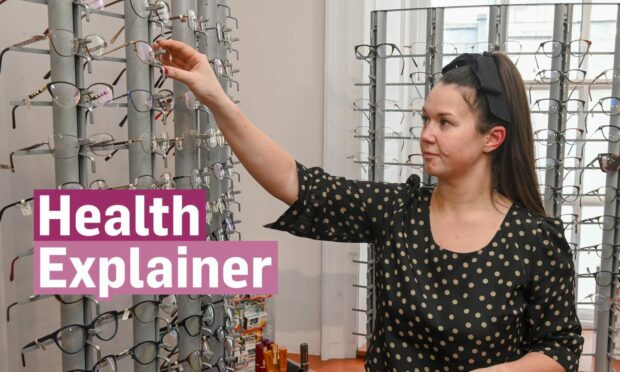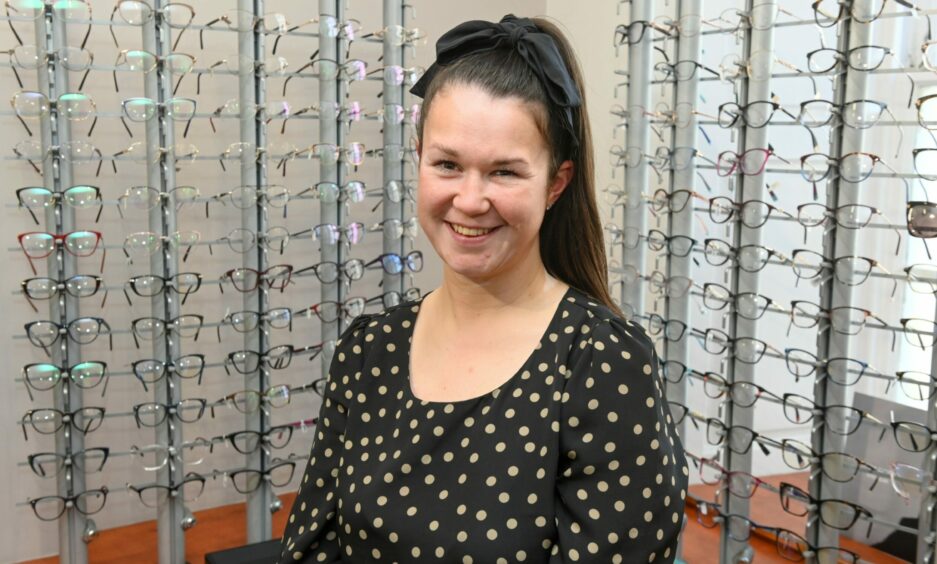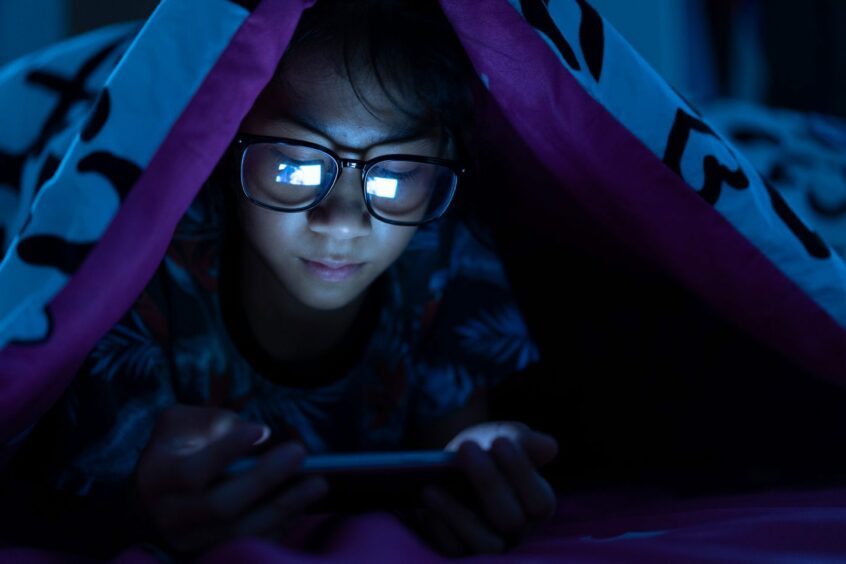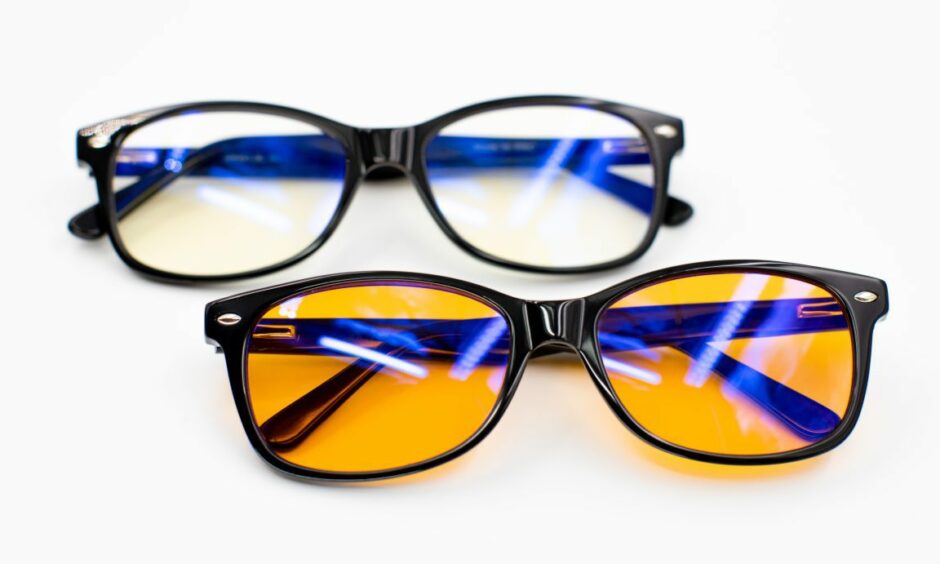Blue light glasses have soared in popularity – but what are they, and do they work? We’ve asked an Aberdeen optician for all you need to know.
Blue light is perfectly natural – even appearing in daylight – but a growing number of man-made sources are becoming increasingly common.
It’s emitted by all digital screens, like computers, phones and tablets.
And the amount of time people spend using them, holding them close to their faces, has raised questions about the long-term effects on our eyes.
Kara Taylor, the manager of the Belmont Street North branch of Duncan and Todd, has looked at some of the key questions about blue light lenses.
Can blue light from screens stop me falling asleep?
While blue light isn’t harmful to our eyes, it can have a similar effect to UV or ordinary sunlight.
This means it can stimulate our attention and our mood – not the best when we’re trying to get to sleep.
Some small studies have suggested blue light glasses could help – but there’s not yet enough detail to say for certain.
Can blue light give you a headache?
Kara says blue light is commonly blamed when people get headaches after spending hours staring at a screen.
It’s actually one of the symptoms of digital eye strain, or computer vision syndrome (CVS).
This can leave your eyes feeling dry, watery or sensitive to light. It can also cause blurred vision or give you a sore head.
“These issues can be caused by factors including screen glare, the distance between you and your screen, and not taking sufficient breaks,” Kara says.
“So, although you may be experiencing eye irritation from a long day working on your computer, your eye discomfort is not directly from the blue light itself.”
Will blue light harm my eyes?
No. The level of blue light emitted from screens is regulated and much lower than what’s present in normal daylight.
Special lenses can block blue light from entering your eyes but researchers don’t yet know if doing so has a positive effect on eye health.
Can wearing blue light glasses reduce my screen time?
Maybe. Some people say it makes them more aware of the time they’re spending looking at a screen.
In turn, they try harder to reduce it.
“This can lead to your eyes feeling more rested, as our eyes become strained when looking at something too closely for long periods of time,” Kara says.
Additionally, we tend to blink less when looking at screens.
She added: “So, there may be a reason to buy blue lenses, even if it isn’t the reason you thought it would be.”





Conversation